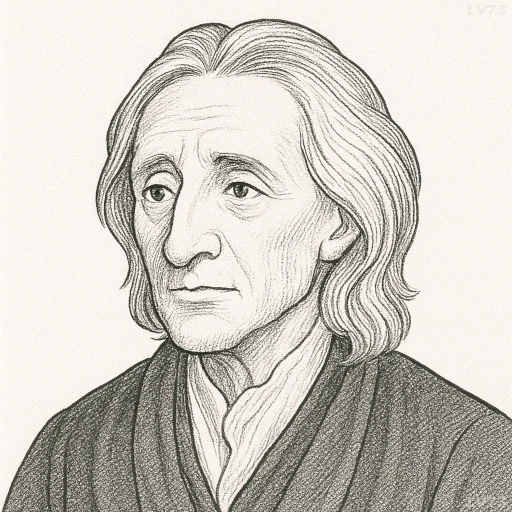“One unerring mark of the love of truth is not entertaining any proposition with greater assurance than the proofs it is built upon will warrant.”

- August 29, 1632 – October 28, 1704
- Born in England (UK)
- Philosopher and political thinker
table of contents
Quote
“One unerring mark of the love of truth is not entertaining any proposition with greater assurance than the proofs it is built upon will warrant.”
Explanation
In this quote, John Locke emphasizes that a true love of truth involves a commitment to evidence and reason rather than blind belief or certainty. He suggests that one who truly seeks the truth will not accept any claim or idea with more confidence than the evidence supporting it justifies. In other words, our belief in a proposition should always be proportionate to the strength of the proofs and arguments backing it. Locke is advocating for intellectual humility—acknowledging that we should not hold strong convictions unless they are adequately supported by rational evidence.
Locke’s view aligns with his broader philosophy of empiricism, where knowledge is based on experience and evidence rather than on preconceived beliefs or innate knowledge. During the 17th century, this perspective was part of a larger intellectual movement that sought to challenge dogma and promote rational inquiry. Locke’s emphasis on reasoning and evidence as the foundation for beliefs helped lay the groundwork for modern scientific thought and the philosophy of critical thinking. His idea here suggests that genuine love for the truth requires us to remain open to new evidence, adjusting our views when stronger proofs are presented.
In modern times, Locke’s call for aligning belief with evidence remains central to fields such as scientific inquiry, law, and philosophy. It underscores the importance of critical thinking in an age where information is abundant, but not always reliable. This principle also applies to contemporary issues like debates on climate change, public health, and political discourse, where it’s crucial to base conclusions on verified facts and sound reasoning, rather than on prejudices or emotional responses. Locke’s quote reminds us that the search for truth requires rigorous evaluation and a commitment to evidence, avoiding the temptation to assert something beyond what the available proof can justify.
Would you like to share your impressions or related stories about this quote in the comments section?

